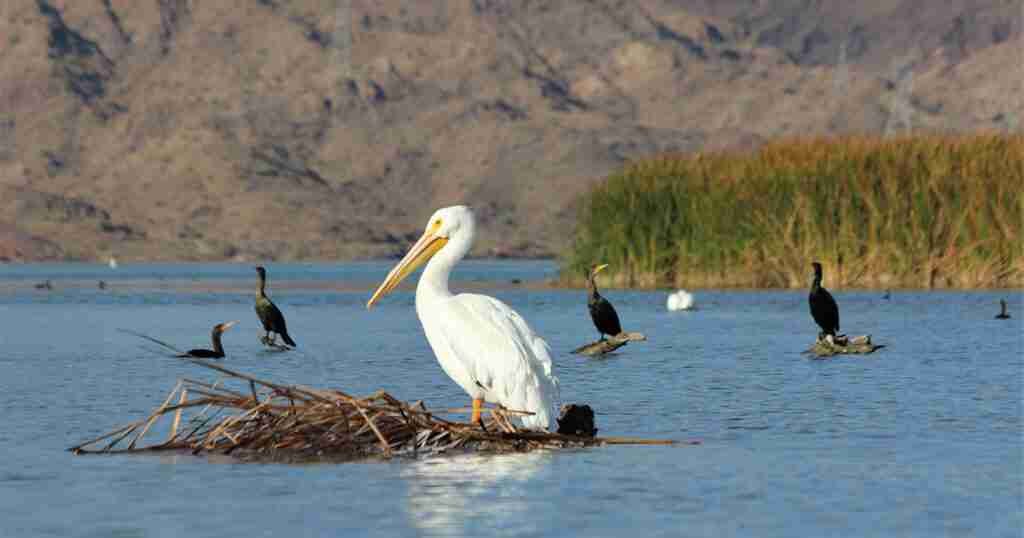[ad_1]
**Este artículo se puede encontrar en español**
The Colorado River is threatened by drought and climate change, and Audubon is working hard to ensure that federal changes to stabilize water supplies for people will work for nature—specifically the river’s riparian and wetlands habitats and the birds that depend on them, throughout the basin from Wyoming to Mexico. Our sights are set on 2026, when major federal operating guidelines for the Colorado River will be refreshed (the official decision-making process was initiated this week with a scoping notice).
In the near-term, the U.S. Bureau of Reclamation (Reclamation) is assessing a plan to conserve water which was developed by the states of Arizona, California and Nevada for 2024-2026 that likely results in fallowing 125,000-200,000 acres farmland resulting in an additional 8% reduction in total Colorado River use for each of the next three years. Audubon joined with conservation partners to send a letter to Reclamation supporting the federal effort to stabilize the Colorado River system in the near-term, and urges the agency to consider how to do that in a manner that is true to the agency’s mission “to manage, develop, and protect water and related resources in an environmentally and economically sound manner in the interest of the American public.” While the plan is short in duration, we consider it a “warm-up” for the long-term planning effort ahead.
Our top priorities:
- The federal government should factor habitats into near-term basin management decisions. These irreplaceable habitats include the Grand Canyon, Salton Sea, Ciénega de Santa Clara in the Colorado River Delta, and restored riparian habitats on the Lower Colorado River mainstem.
- The federal analysis should fully identify the consequences of proposed management actions to better inform decision makers and the public of natural resource impacts throughout the Basin. Even if the proposed water conservation actions are not defined in specific terms, Reclamation can point to the types of resources that will be impacted in the absence of mitigation, including the human environment (communities, economies, cultural values, livelihoods) and natural resources (soils, surface and groundwater sources, air, vegetation, wildlife, habitats, etc.). In addition, we urge Reclamation to use their analysis to identify mitigation opportunities (such as incentives to maintain cover crops to avoid dust emissions and loss of habitat value when farms are fallowed).
We also urge the federal government to look past these next three years to ensure the agency’s short-term decisions and investments align with long-term needs in the Colorado Basin including equity and inclusion for Native American Tribes, management that sustains the Colorado River’s natural habitats, and mitigating other impacts to communities and livelihoods. Where federal funds are used as incentive for water conservation, they should be used for durable, multi-benefit projects.
Climate change is upending status quo management in the Colorado River Basin faster than state and federal managers anticipated. Warming temperatures are drying the landscape, the river’s flows have declined 20% from the 20th century mean, and reservoirs have dropped precipitously to the point that threatens the water supply for 40 million people. Stabilizing the basin’s water supply system is important to avoid water supply crises that make it difficult for elected leaders to prioritize environmental considerations. But that cannot be the limit of federal effort if we want a future with thriving communities and wildlife.
In addition to our letter to Reclamation, we will be submitting scoping comments by the August 15 deadline for post-2026 Colorado River operating guidelines. Thank you to the 11,000 bird lovers who submitted comments on the Draft Supplemental Environmental Impact Statement before Reclamation hit pause to assess the deal between the lower basin states. We will keep you updated as more opportunities for comment and engagement arise.
[ad_2]
https://www.audubon.org/news/short-term-federal-management-colorado-river-needs-long-term-outlook



